
23 minute read
FACES FUTURE OF THE
FACES FUTURE OF THE
Entrepreneurs across the region are hoping this year their idea could be the one everyone talks about
By Nicky Godding, Editor
When we talk about entrepreneurs, names tripping easily o the tongue include Sir Richard Branson, Sir James Dyson and Dale Vince. But Sir James is 76, Sir Richard is 73 and Dale, 62.
We’re not being ageist – we’d be stupid not to acknowledge that just one day in the company of any of them could teach us more than a year on an entrepreneurship course – our point is since they came to our notice in the 1980s – the business landscape has changed almost beyond recognition.
So who’s in the running for the-most-talkedabout-entrepreneur for the 2020s?
We can think of a few. Stephen Fitzpatrick, 46, established Ovo Energy in 2009 buying and selling electricity to domestic homes. First based in Cirencester, he moved to Bristol as the business grew.
Seventeen years later, as if establishing one of the UK’s most successful energy suppliers wasn’t enough, he set up Vertical Aerospace to revolutionise urban air mobility and electrify air travel. He now wants to build the most advanced electric vertical take-o and landing (eVTOL) aircraft – and has gained support from across the industry.
Then there’s Ben Francis. This 31-year-old from the Midlands is co-founder of athleisure brand Gymshark, which he established in 2012 with Lewis Morgan while they were still at university. Ben is now CEO of the £350 million turnover Solihull brand.
Stephen Bartlett, 31, who moved with his family from Botswana to Plymouth when he was two, founded a social media company which sold for millions. He then became a Dragon on the BBC programme’s Dragon’s Den, and more recently he has set up the successful podcast, Diary of a CEO.
Spot something? They’re all men. There are entrepreneurial women of course – Victoria Beckham, 49, is now known as much for her successful fashion brand as for being a Spice Girl.
Dame Sharon White, 56, is the boss at John Lewis and Karren Brady, 54, was the managing director of Birmingham City Football Club before becoming Sir Alan Sugar’s aide in the BBC’s The Apprentice.
Female entrepreneurs from ethnic minority backgrounds experience the biggest barriers to success, but location is an important factor, irrespective of ethnicity and gender.
Greater London is the toughest place to be an entrepreneur, while entrepreneurs in the South East and North East see most success, according to research.
What do you need to succeed in business? Vision, creativity, decisiveness, resourcefulness, persistence – but most of all you need to have an idea and really believe in it – and in yourself.
Our feature showcases entrepreneurs from across the region, who are making it happen.
Ben is hitting the right notes with his guitar marketplace
Young entrepreneur Ben Gri n is hitting the right notes with his customers, after revealing last year that his e-commerce business, The Guitar Marketplace, was turning over more than £100,000 per month.

The three-year-old online competition company specialises in o ering guitar enthusiasts the opportunity to win their dream instruments – some of which can cost up to £14,000 – with a virtual ra e ticket costing just a few pounds.
Since 2020 he says he has handed over £1.7 million worth of guitars – including Les Pauls, Fenders, and Gibsons – to more than 4,500 randomly-selected winners.
Ben has grown a bedroom-based business into a successful venture with a team of four employees, all hailing from the local area, with an o ce/studio in Brierley Hill, near Dudley.
“With four employees all in our early 20s, and an average age of just 24, we must be one of the youngest businesses running in the region, if not the youngest,” said Ben.
Ben - who works seven days a week – keeps his business local rather than moving away to a larger city, and aims to buy largely from local music shops.
The Guitar Marketplace Team – with Ben far right
Liha and Abi on their way to building a global beauty brand
Beauty brand LIHA was founded by Gloucestershire born and bred Liha Okunniwa and London girl Abi Oyepitan, who met at university in 1998.

After university, the girls pursued di erent careers. Abi became a two-time Olympian and one of the fastest sprinters Britain has ever produced. Liha set up an art publishing business.
Liha said: “Whenever Abi travelled, I would ask her to bring back di erent ingredients –especially that good Nigerian Shea from her father’s town.”
And so LIHA was born. In the Yoruba (Nigerian) tradition, making beautifying oils, soaps and lotions from the nuts, tree bark and plants that grew in abundance was a traditional skill learned by all young women.
Liha’s mother is an English aromatherapist, so she started to blend the two disciplines together.
Last year the business raised £1 million via a funding round led by private equity.
The investment follows £200,000 raised by the organic skincare brand pre-pandemic.
It’s a long way from Liha and Abi starting their business on £3,000 of savings each, and there have been many struggles along the way, despite winning countless beauty industry awards.
Liha said: “Over the years we have been to countless investment meetings where people were genuinely ba ed that we couldn’t just do a friends and family round or quit our other day jobs to focus on product development.
“People often ask if we knew then what we know now, would we have gone a di erent route and tried to raise super early on just with concept and no market proof. Maybe it would have been quicker or easier – but we all know the statistics on black woman founders and what percentage of investor/ private equity capital actually reaches our banks.”
But the world has moved in their direction. Beauty editors love LIHA.
James Hygate took bio-fuels into the mainstream ... now he’s got plans to repurpose sewage
Around 20 years ago, James Hygate founded Gloucestershire-based Green Fuels. Fast forward a couple of decades and his company now sells biodiesel-making equipment, which converts cooking oil into fuel, all over the world.
Now he’s turning his attention to human waste. Yes – poo.
James said: “Sewage is a problem and a very undesirable waste, whereas sustainable jet fuel is a major commodity. Being able to create a valuable thing from waste seems quite magical, but really it’s just great chemistry.”
In 2021, James, his business partner Dr Paul Hilditch and research director Dr Sergio Lima entered the “Green Fuels, Green Skies” competition organised by the Department for Transport, winning a £2 million research grant.
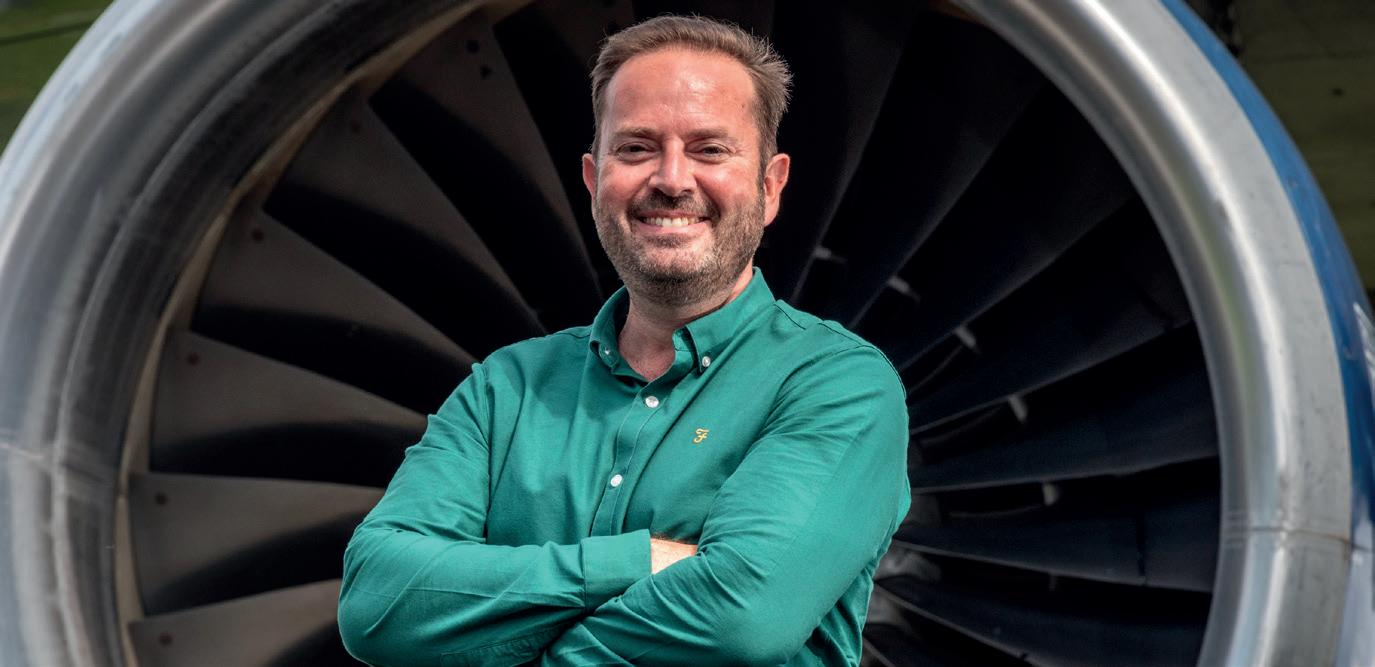
Their research team were already experimenting with a process called hydrothermal liquefaction or HTL.
In simple terms, the HTL process involves taking sewage sludge provided by the water utilities and putting it into an energy-e cient high-pressure reactor. The sludge begins to separate into two useful materials. One is a biochar which, as fertiliser can be supplied to the agricultural industry. The other is a bio-oil, or crude, which can be refined into jet fuel.
The men set up Firefly and last year secured £5 million investment from Wizz Air. It was Wizz Air’s first equity investment in
sustainable aviation fuel (SAF) research and development. The partnership will allow the airline to supply SAF to its UK operations from 2028, up to 525,000 tonnes over 15 years. The agreement has the potential to save 1.5 million tonnes of CO2.
James is now preparing plans to build a demonstrator plant in the UK to start manufacturing large quantities of fuel and is looking for investors for this stage of development.
LIHA Beauty believes in the slow living philosophy rooted in Yoruba culture –wellness and self-care.
James Hygate, Firefly
Liha Okunniwa and Abi Oyepitan of LIHA Beauty
Alan Rock, founder of Moasure
REVOLUTIONISING COMMUNITY PHARMACY OPERATIONS, TARIQ AND WAHID HAVE GLOBAL AMBITIONS
It’s a decade next year since former pharmacist Tariq Muhammed, on a mission to revolutionise community pharmacy, first set up the company behind Titan PMR.
Four years ago, his creation became the first cloud-based patient medication record software, and the first patient medical record system to be accredited by the NHS in more than a decade.
Since then it has been adopted by more than 500 community and online pharmacies, as well becoming accredited for remote rural dispensing doctor’s surgeries. It is now used to process almost seven per cent of all prescriptions in the UK, the company said.
Its latest development has seen two years and more than £1 million of private investment go into creating Titanverse – a new pharmacy management system.
This software enables pharmacy chain owners to digitally transfer workloads between separate pharmacies, communicate directly with patients, carry out consultations, manage appointments and promote specialist clinical services.
For almost 20 years before setting up Titan, Tariq ran Bristol-based Pharmacy Plus, which grew to a 25-strong chain across the South West, from Gloucester to Plymouth. The company developed into a national provider of pharmacy services to care homes.
Invatech Health was set up in 2014, creating and providing SaaS (software as a service)
solutions within primary healthcare – in Tariq’s words “a force for change in the delivery of healthcare services harnessing the power of technology”.
Heading up the technical elements of the development has been Tariq's brother and Titan PMR CEO Wahid Muhammed.
Wahid has worked in pharmacy and health tech since 2000. Before Invatech Health, where he is now Chief Technology O cer, Wahid was head of IT development at the care home services division of Pharmacy Plus, leading the development of IT strategy and architecture to create a pioneering solution which changed the way nurses administered medication to patients.
Today, he works with Tariq developing new healthcare technologies.
Their ambitions are huge – a nationwide mission to give pharmacists across the UK the capabability to independently grow their businesses to administer a wider range of clinical services, providing the paying public with a viable alternative to relying on the NHS.
Tariq and Wahid hope that, by using Titan’s products, pharmacies can become genuine community health hubs – not just dispensing but also diagnosing and prescribing solutions for a range of health problems. Currently 90 per cent of the average pharmacist’s work comes via the NHS. Titan says it is creating the opportunity for a parallel medical service that sits in the community, paid for by people who want to use it.

Qualified electronic engineer
Alan Rock developed the idea for Moasure in 2002. He says it is the world’s first motion-based measuring tool. He built a working prototype but had to wait more than a decade before launching the business due to the high cost of complex sensors used in the device.
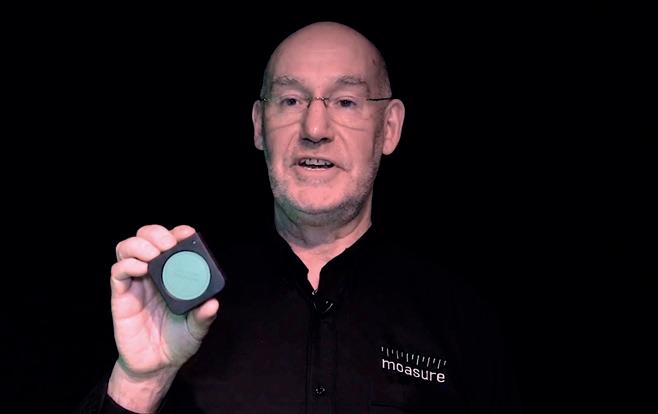
Moasure’s patented technology uses motion to make measurements, leveraging inertial sensors and a proprietary algorithm to deliver an innovative new way to measure.
Moasure successfully launched a smartphone app, allowing users to leverage the motion sensors in their smartphone to take measurements, by simply moving their phone. This app validated the technology and is free to download and use. Alan’s focus is now dedicated to the Moasure ONE .
Moasure’s unique motion-based technology, allows Moasure ONE to know where it is in 3D space, allowing users to measure and draw simultaneously.
With Moasure ONE a user can measure up spaces and have a fully dimensioned drawing complete in the time it takes to walk around a room or outdoor space. This allows users to dramatically speed up the measuring process.
The business, based at the University of Warwick Science Park’s Innovation Centre, now ships to more than 150 countries and its ambition is to revolutionise the way people measure and eventually make the tape measure and spirit level obsolete.
A measured approach to innovation could make the humble tape measure obsolete
Tariq and Wahid Muhammed of Invatech Health and Titan PMR
HANNAH AND HER HUSBAND ARE BUILDING BETTER TOGETHER
When a client trusts you with the complete renovation of their new five-bedroom house, without having actually seen the property they’ve bought (because they’re based in Hong Kong) – and gives you just three pieces of art on which to base the entire project, you know you’re in business – especially when the end result is a very happy client.
That’s what happened to Hannah Walkiewicz at The Build Bristol Group, a privately-owned construction company specialising in residential refurbishment, renovation, extensions and new build construction.
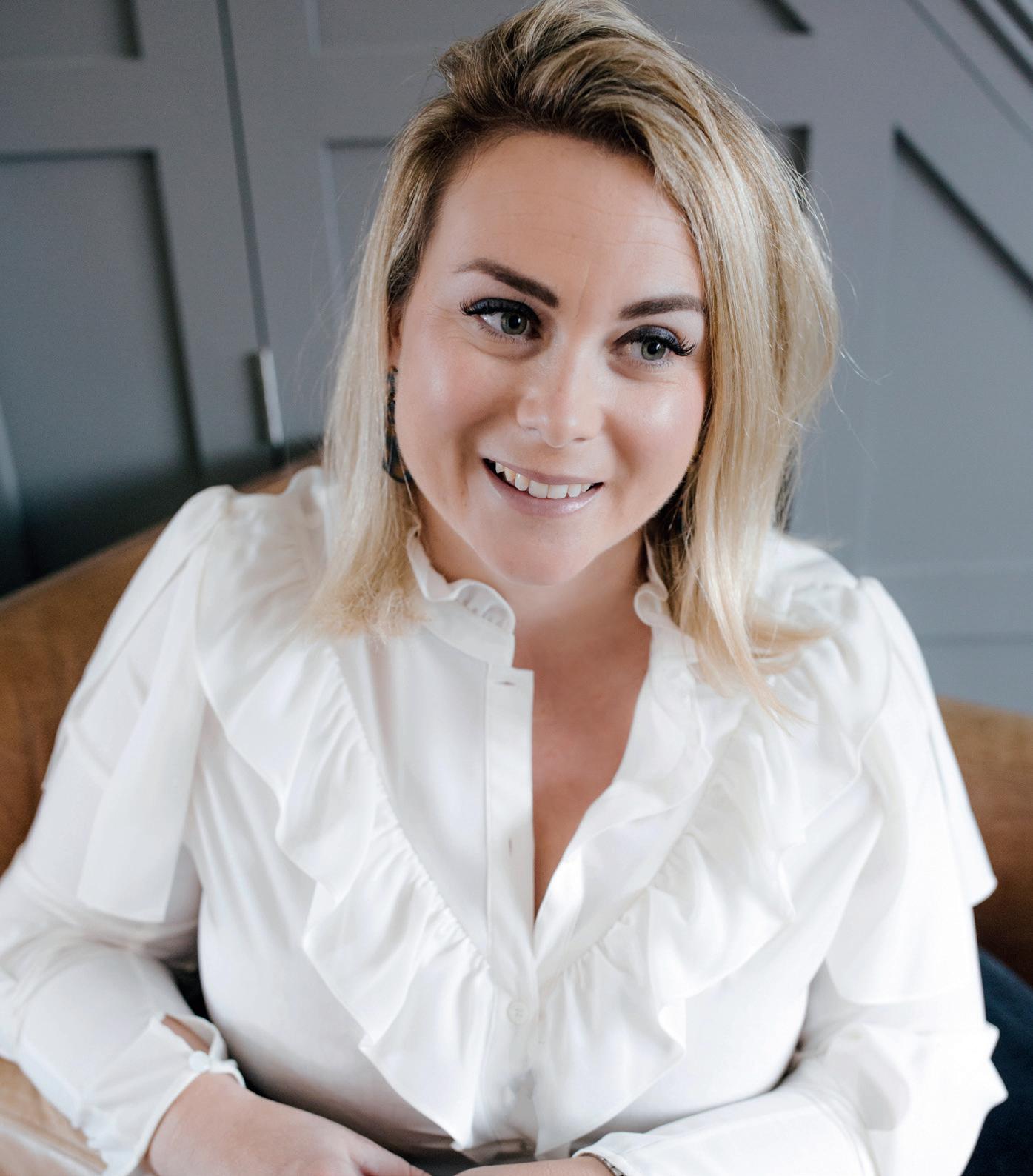
The business launched 10 years ago, after Hannah and her husband decided to go
into business together. “I was working in recruitment in London and my husband was a property developer. I was expecting our third child and looking for a way to work from home around them.”
It’s not always advisable to go into business with your other half, but it’s certainly worked for the Walkiewicz family. Hannah manages the marketing and much of the client liaison, while her husband operates the company’s 30-strong Polish team.
“It works because women are very often the decision-makers and don’t always want to talk to a male builder, because they can feel at a disadvantage,” she says.
The Build Bristol Group also follows green principles. “We operate just one electric vehicle and one van, rather than having many vans running around the area,” she adds.
The company has now burst out of its Bristol home and successfully undertaken projects further afield – including Gloucestershire, Surrey, London and even France.
The company has seen its revenues rise steadily and last year turnover was more than £1.7 million, and for Hannah, the only way is up.
“With the children all in full-time school, I can now devote even more time to the business I love,” she added.
Julie is drilling down into future talent
Julie White is not only Managing Director of D-Drill, a Coventry-based diamond drilling and sawing company and the first woman to chair the Drilling and Sawing Association, but is also the Chair of Build UK, the national organisation helping the sector improve productivity, business performance and recruitment.

She is a member of the Prime Minister’s Business Council, chairs Build UK’s Education to Employment group and previously served on the CITB National Council. She is supporting Build UK’s major recruitment initiative, Open Doors 2024, which is aiming to get young
people into construction. It takes them, and those looking for a change of career, behind the site hoardings to experience construction first hand.
She said: “Having grown up visiting construction sites with my father, I know what a di erence seeing our industry in action makes.
“Open Doors is a unique opportunity for young people and those looking for a change of career to go behind the scenes of sites and other workplaces up and down the country and see what a career in construction looks like.”
Hannah Walkiewicz at The Build Bristol Group
Julie White, managing director of D-Drill and Chair of Build UK
Will Goodwin, Georgia Stewart and Benjamin King of Tumelo

Creating more investment transparency
Tumelo was established by founders Will Goodwin, Georgia Stewart and Benjamin King who campaigned for greater transparency of their university’s £6 billion endowment fund and its investments.
After university (Cambridge), their interest in investment transparency led them into the world of shareholder voting. They soon recognised a twopronged problem with the current proxy-voting system: fund managers having little visibility over their clients’ voting preferences; investors feeling disengaged from their assets and potential impact on global markets.
They set out to create a better voting infrastructure. The company, now based in Bristol, believe its technology can create a more transparent and representative stewardship process leading to better outcomes for investors and the industry as a whole.
Last September, Tumelo announced it was enabling a new pass-through voting solution being offered by Legal & General Investment Management, making it one of the first UK asset managers to embrace this level of client empowerment.
The £2 billion Local Government Pension Scheme for Camden is the first client to take advantage of the passthrough voting partnership, allowing it to vote directly in line with its responsible investment values including CEO remuneration and climate change.
The tie-up with Tumelo enables clients such as pension schemes apply their preferred voting policy to shareholder proposals across their pooled fund holdings and applies to a large number of Legal and General Investment Management funds.
HELPING THE UK ACHIEVE NET ZERO AMBITIONS THROUGH CONSTRUCTION INNOVATION
Bristol-based, award-winning company Adaptavate is rethinking the way building materials are produced, used and disposed of.

The man behind it is Tom Robinson who began his working life as an on-site builder and plasterer before studying for a Masters in Sustainable Architecture at the Centre for Alternative Technology. It was here he developed what is now known as ‘Breathaboard’ and from this he was encouraged to apply for an entrepreneur competition, winning him a place on the Climate Kic accelerator programme at Imperial College London. These experiences gave Tom the tools to go from on-site builder to company builder, and Adaptavate was born.
Since then, Tom has won a number of entrepreneurship awards throughout Europe and has built Adaptavate into a successful business.
Adaptavate designs low-carbon construction products for healthy buildings and inhabitants which help ensure the longevity of the world’s fragile ecosystem while surpassing the performance of market leading products. By taking an innovative approach to the design and manufacture of construction products it is working to clean up and breathe fresh air into this traditionally conservative sector. It aims to produce these progressive materials at the scale needed to have a significant positive impact on the health of people and planet.
Adaptavate has developed a number of innovative construction materials. Breathaboard is a carbon-absorbing plasterboard made from lime and food crop by-products including oil seed rape and hemp, sandwiched between two layers of recycled paper. Breathaplasta is a high-performance environmentally-friendly alternative to cement and gypsum plasters. Mixed with water and applied using conventional methods, this bio-composite product also helps to regulate moisture and improve insulation.

Tom Robinson with his Adaptavate sustainable plaster
Ben boxes clever to boost the sport he loves
Ben Amanna learned to box when he was 12. It was his way of standing up to bullies and defend himself against gang violence. Boxing empowered him not to be the victim. Along the way he also discovered the values of discipline and mindfulness and fell in love with the sport.
His Coventry-base Boxraw sells boxing clothing and equipment, but more than that, Ben’s brand is built on the belief that boxing is more than a sport, it’s a way of life enabling the spirit of the sport to live inside and outside the squared ring.
His ambition is to create, shape and own the boxing ecosystem to help those who box to improve fitness, learn techniques and boost their confidence.

His Boxing is Love is a Boxraw Foundation
and registered charity which is using boxing as a mechanism for positive change around the world.
Ben says: “Boxing took me away from what would have been a dangerous life on the streets and instead taught me how to fight for what I wanted in life. It gave me the tools necessary to pursue that which I found meaningful and instilled in me a mindset that carried me through my younger years and into today.
“It did this for so many others around me and all those involved in Boxing Is Love today.
“I want to unite the world through a shared love for the sport and create the most significant social movement boxing has ever seen.”
Change My Face shows the future

Last year, Change My Face, an award-winning tech company based in Cheltenham, secured £50,000 from Innovate UK to tackle inclusion innovation in artificial intelligence.
Change My Face creates automagical face changing software to show the e ects of lifestyle habits on the face as we age, such as sun damage, stress, diet and exercise The company’s clients include companies in health and skincare, alongside science museums, the Scottish Government, NHS, Visa, Denver Museum of Nature and Science and American health insurance company Aetna CVS.
It was developed by Auriole Prince, a forensic artist for missing people. She trained with the Medical Artists’ Association of GB and the FBI Training Academy in Virginia, USA.
She said: “Art and science became inextricably linked and grew into Change My Face, a technology company which is now creating AI and machine learning models using an amazing team of developers to create a way to visualise your future self with the e ects of lifestyle.
“During the pandemic, our health became the focus of so much attention and we aim to play a part in improving people’s health through entertaining and engaging software.”
What Matters is the future of the planet
Adam Root is founder and CEO of Bristolbased Matter, a microplastic technology and innovation company pioneering solutions for capturing, harvesting and recycling microplastics.
In August the company announced that it had raised $10 million in Series A funding to enable the company to scale its microplastic filtration technology and accelerate development of solutions for commercial and industrial applications.
Adam, who spent more than five years as a design engineer at Dyson in Malmesbury,
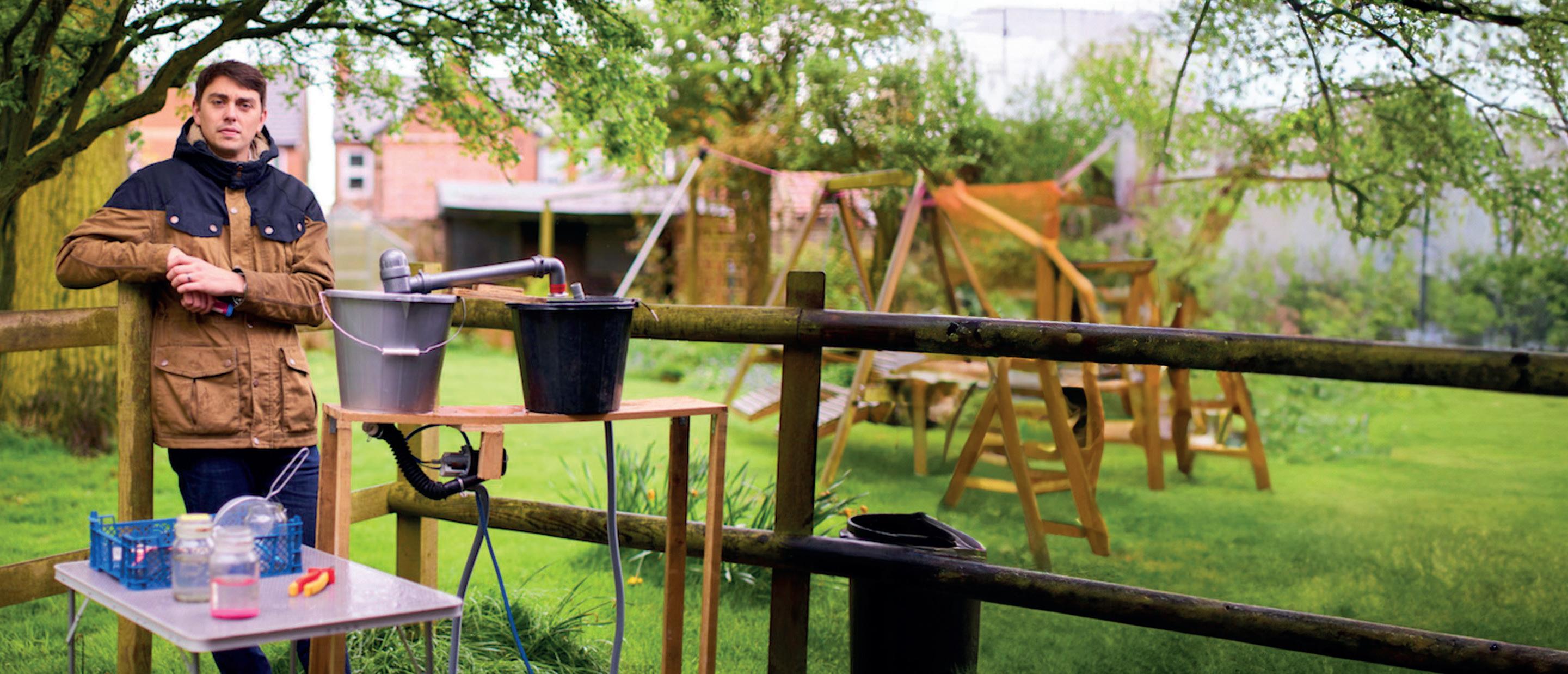
said: “Matter’s vision is to live in a world without micropollutants. We knew that as a small company intent on tackling this global problem, we’d need to work with partners who have the scale, vision and resources to help us deliver our technology as quickly and effectively as possible.
“The combined support and expertise of our investors enables us to accelerate our work, moving beyond laundry into industrial scale applications of our technology, and drive globally meaningful reductions in micropollutant emissions with confidence and speed.”
Ben Amanna
Adam Root, Matter
Auriole Prince,
TURNING WASTE INTO ENERGY
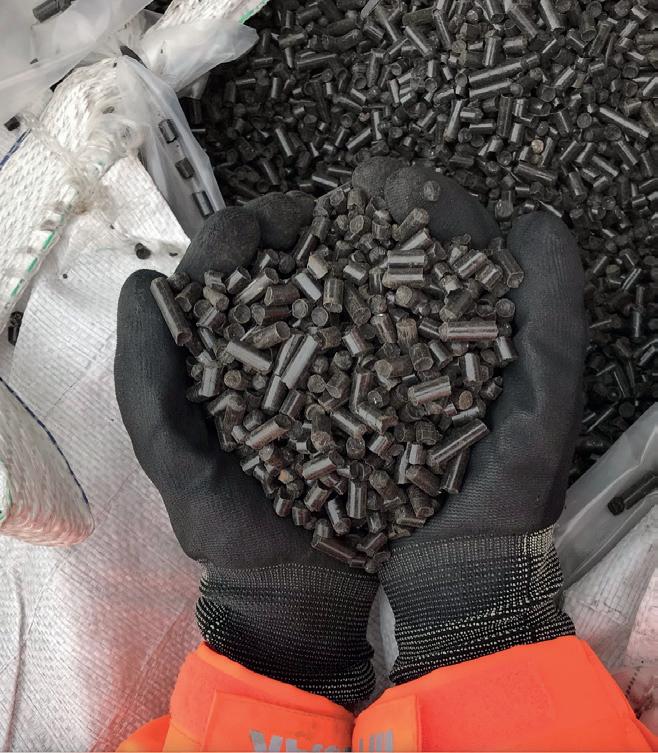
CCm Technologies is an award winning company focused on resource optimisation, including carbon capture and utilisation.
Recycling valuable nutrients from waste streams within the food system provides a promising opportunity to create a lower emissions supply chain. Scaling up low carbon fertiliser production in the UK can provide farmers with a more sustainable product at a reliable price.
CCm’s technology converts captured carbon dioxide and other waste streams (such as ammonia and phosphate) into stable materials with multiple uses across global priority sectors of food/agriculture, advanced materials & energy storage.
The company was established by four founding directors: Professor Peter Hammond, Pawel Kisielewski, Gordon Horsfield and Richard Morse.
Chief Technology Officer Peter Hammond’s background is in commercial process engineering development with a particular focus on the application of carbon dioxide within the food, agricultural and petrochemical industries.
He has worked in the development of food processing plants in North and South America and on specialised phytochemical plants in Europe.
Before becoming CEO five years ago, Pawel was a senior adviser to Kleinwort Benson’s Merchant Banking group and remains a senior adviser at Stanhope Capital with more than 25 years’ investment banking experience in capitalraising in the institutional, public and early stage private markets.
Last September CCm announced its latest trial, in collaboration with Nestlé UK and Ireland and USA-based food, ingredients, agricultural and industrial products supplier Cargill, to use a CCm Technologies process to manufacture fertiliser for two UK farms which supply wheat to Nestlé factories producing breakfast cereals and pet food.
Nestlé and Cargill are assessing whether cocoa shells from a confectionery site in York could be used to create a low carbon fertiliser. If successful, up to 7,000 tonnes of low carbon fertiliser could be produced in York and o ered to farmers in Nestlé UK and Ireland’s supply chain.
Bath artist pops up on Dragon’s Den to reveal his creativity
Early last year the BBC’s Dragon’s Den Dragons were blown away by a paper engineer. Never heard of such a thing? You’re not alone. But Bath-based David Hawcock is one of the most respected people in this little-appreciated art.
His reputation has led to commissions from the Football Association and music industry legends to world-renowned museums, all looking to create dramatic, eye-catching and unique products.
He is also author of a range of acclaimed moveable books, ranging from the innovations of Leonardo da Vinci to a lifesize pull-out book on the human body to pop-up books that encompass everything from children’s cartoons (Maisy Mouse) to awardwinning TV shows (Walking Dead).

David successfully pitched his pop-up paper games to the Dragons who were transfixed by his skills.

Flour power in the Cotswolds
Matthews Cotswold Flour, based in Shipton-under-Wychwood, has partnered with a group of local farmers who have embraced regenerative farming techniques that aim to restore and improve soil health and biodiversity. Using grains from these farms, Matthews Cotswold Flour has created the UK’s first All-Purpose Regenerative White Flour.
Bertie Matthews, Managing Director, said: “The grain used in our new all purpose flour comes from farms which have been implementing a host of regenerative practices for a number of years. Regenerative Agriculture is a term that refers to a farming model of growing food that protects and improves soil health, biodiversity, water retention and quality. Farmers use a host of practices including reducing soil disturbance, implementing wide crop diversity, integrating livestock, maintaining living routes and protecting the soil surface.”
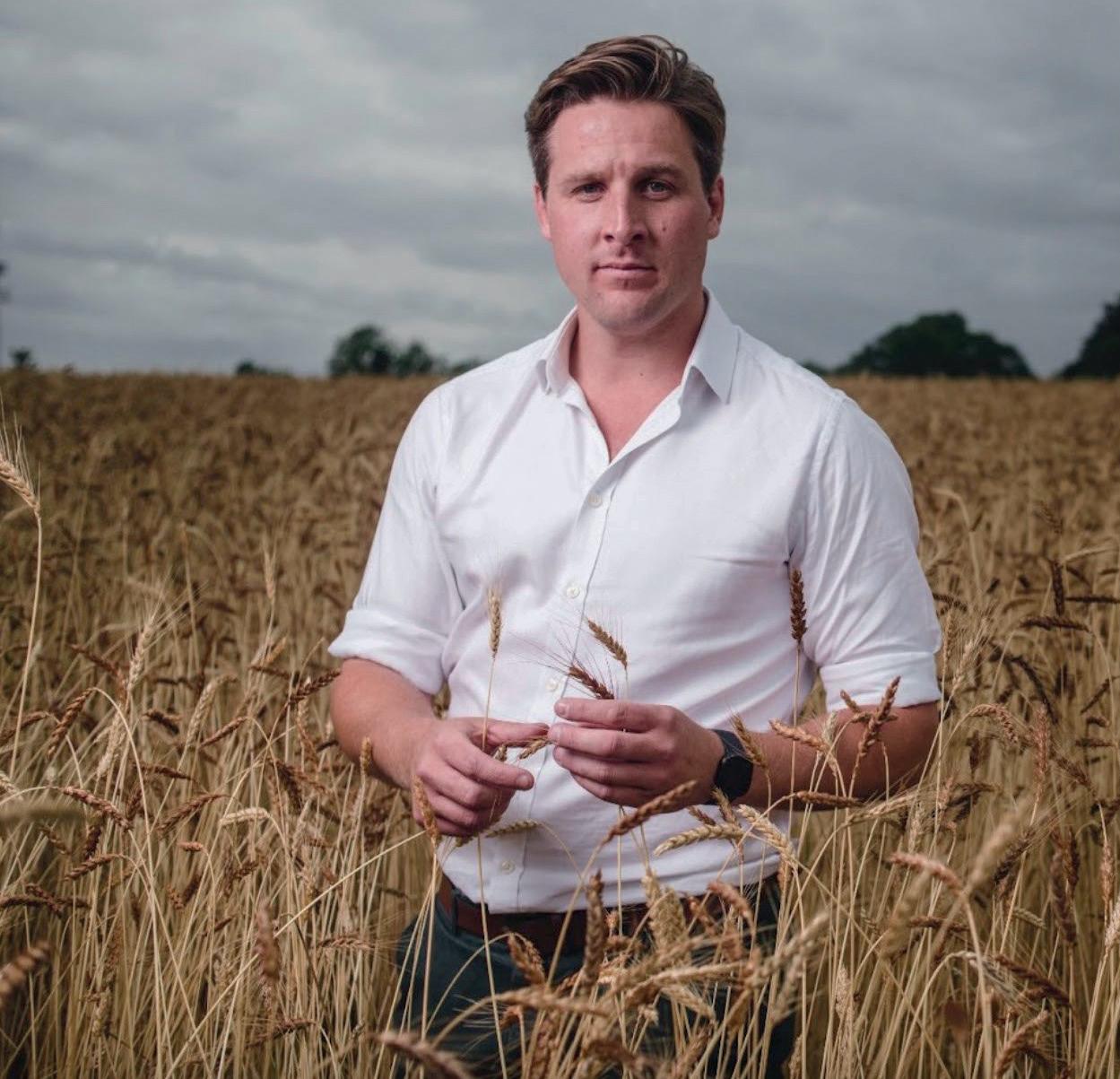
The Matthews Cotswold Flour story began in 1912, when Frederick Matthews built a mill on the River Evenlode, overlooking the picturesque Cotswold village of Shipton-UnderWychwood.
Today, the company is led by father and son team Paul and Bertie Matthews – Frederick Matthews’ great, great-grandsons.
FROM FANCY DRESS SELLER TO MULTI-MILLION-POUND SUPERSELLER STATUS LEVEL
Dominic Portman graduated in 2012 with a first-class honours degree in Psychology and went on to launch Boulevard in 2016, which describes itself as a marketplace super seller. The company now has a growing team of 70 and two distribution centres, with sales and order fulfilment run by the company’s leading tech platform, Eiger.
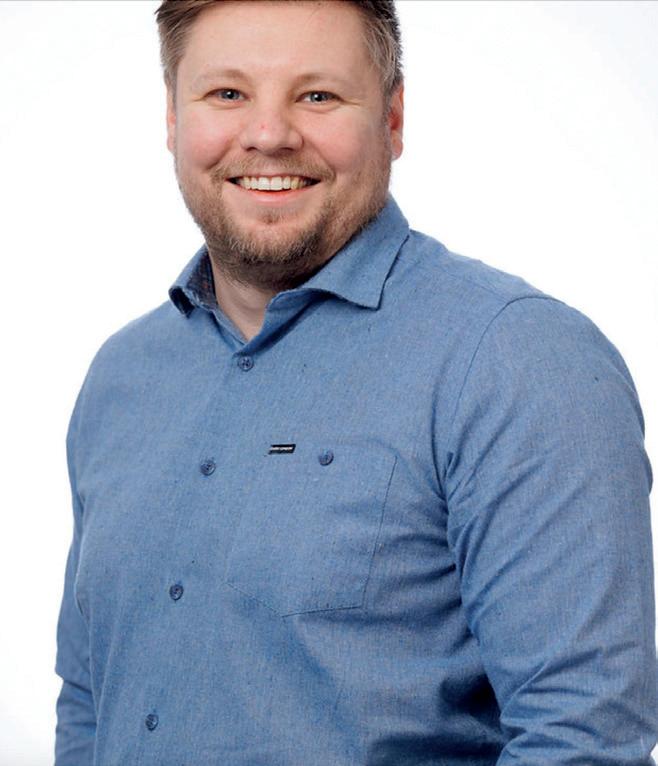
But his first entrepreneurial activity was selling fancy dress outfits to fellow university students, with a business named Fancy Fresher. This became Fancy Dress Worldwide, a single category e-commerce business that sold fancy dress products via the world’s leading online marketplaces, like Amazon.
From this he founded Boulevard which o ers more than 100,000 products to customers online, working with product manufacturers and distributors to grow product listings on marketplaces online. Boulevard has expanded to this scale
in just four years and o er products to customers in more than 20 countries worldwide. The company operates two distribution centres, based in Worcester. It is now a tech-first company, using its unique internal software platform Eiger, which enables the company to sell products online and fulfil orders through its warehouses efficiently.


